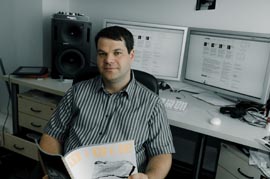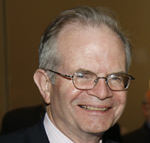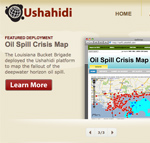UPDATE – VOTING ON THIS POLL HAS NOW CLOSED
Yesterday Journalism.co.uk published our final list of 49 people that we consider to be innovators in their area of journalism or digital media. As with all lists, it’s incredibly subjective and open to debate – which is exactly what we wanted people to do.
We’ve had lots of suggestions for who else should be included. We’re listing them all below – remember, these are NOT Journalism.co.uk’s selections, they are from our readers.
Vote for your choice below – voting will close at 5:00pm on Tuesday 10 August.
See below the poll for descriptions of the candidates.

Mike Butcher – long-time journalist and blogger, taking industry titles online long before anyone else was publishing websites. Joined TechCrunch in 2007 and is now editor of TechCrunch, Europe.
Adam Westbrook – freelance multimedia journalist, nominated by Mike Butcher.
Deborah Bonello – now working for the Financial Times, Deborah Bonello founded the multimedia reporting project Mexicoreporter.com. Nominated by Mike Butcher.
Mike Magee – founder of the Register and technology news website the Inquirer. Nominated by @wegotblankets.
SOCHI project – Ambitious, crowd-funded project from photographer Rob Hornstra and writer/filmmaker Arnold van Bruggen to document the changes in the area around Sochi, where the Winter Olympics will take place in 2014, over five years. Nominated by Ann Laenan.
Mike Rawlins/Pits ‘n’ Pots – part of the team behind hyperlocal news site for Stoke with an emphasis on local politics. Nominated by Sam Freeman.
Natasha Loseva – Curator of internet projects at Russian news agency Ria Novosti. Nominated by colleague Valery Levchenko, who says: “Her innovative multimedia ways made @rianru the best source on Russia with UGC.”
Brian Farnham – editor-in-chief of US hyperlocal website Patch. Nominated by colleague Benji Feldheim for Patch’s rapid growth in websites.
Richard Wilson (a.k.a. @dontgetfooled) – Nominated by Naomi McAuliffe for “for his sterling work on Trafigura and Carter-Ruck, dodgy MPs, the ignored problems in Burundi and freedom of expression and libel”.
Emily Bell – former digital director at Guardian News and Media, Emily Bell will now lead the Tow Centre for Digital Journalism at Columbia Journalism School. Nominated by @balihar.
Ilicco Elia – head of consumer mobile at Thomson Reuters, nominated by Sarah Booker. Pushing innovation in social media and mobile media for news organisations.
Niall Hunt – Digital content strategy manager for CMP Medica with a history of innovation, including time at EMAP investigating new approaches to web journalism. Nominated by colleague Chris Chapman, who said: “leading a web revolution here, with amazing track record in online journalism”.
Guy Clapperton – freelance journalist, broadcaster and author (has also worked as a trainer for Journalism.co.uk in the past) – an expert in online branding and marketing for freelancers.
OWNI.fr – collaboration of journalists, developers and designers creating new forms of online storytelling and news applications – and making a profit from its work. Team features Nicolas Voisin, founder and CEO, Adriano Farano and Nicolas Kayser-Bril.
Tomas Bella – Nominated by Nicolas Kayser-Bril: “He’s the only person I know of to have bought and integrated a digg-like for a news website (sme.sk) and he now offers solutions to the local online media, such as a Kachingle-like paywall plan.”
Dejan Restak – Nominated by Nicolas Kayser-Bril: “He developed a last.fm-like for the news portal B92.net and now works with mobile news at WAN/IFRA.”
Chris Wheal – freelance journalist who is successfully making a living from online journalism working for a range of finance and insurance news titles. Leading online training and development for young journalists as part of the National Union of Journalists’ training arm.
Robert Andrews – editor of paidContent:UK, nominated by Patrick Smith: “He’s been doing analysis-driven live journalism with data/charts for years.”
 Tomáš Bella was longtime editor-in-chief and deputy director of Sme.sk, the most popular news site in Slovak republic. He was the author of projects such as the first European newspaper-owned blogportal (blog.sme.sk, 2004) and the first digg-like service (vybrali.sme.sk, 2006) that put the links to the competitors’ articles directly on the frontpage of major newspaper web.
Tomáš Bella was longtime editor-in-chief and deputy director of Sme.sk, the most popular news site in Slovak republic. He was the author of projects such as the first European newspaper-owned blogportal (blog.sme.sk, 2004) and the first digg-like service (vybrali.sme.sk, 2006) that put the links to the competitors’ articles directly on the frontpage of major newspaper web.
 Tomáš Bella
Tomáš Bella Paul Steiger
Paul Steiger Chris Taggart
Chris Taggart Ian Hislop/Private Eye
Ian Hislop/Private Eye Brian Boyer
Brian Boyer Ushahidi
Ushahidi